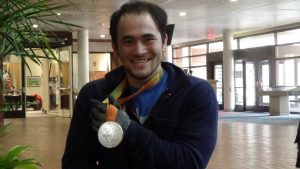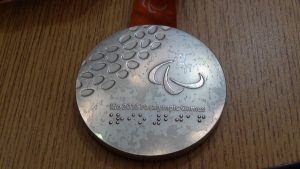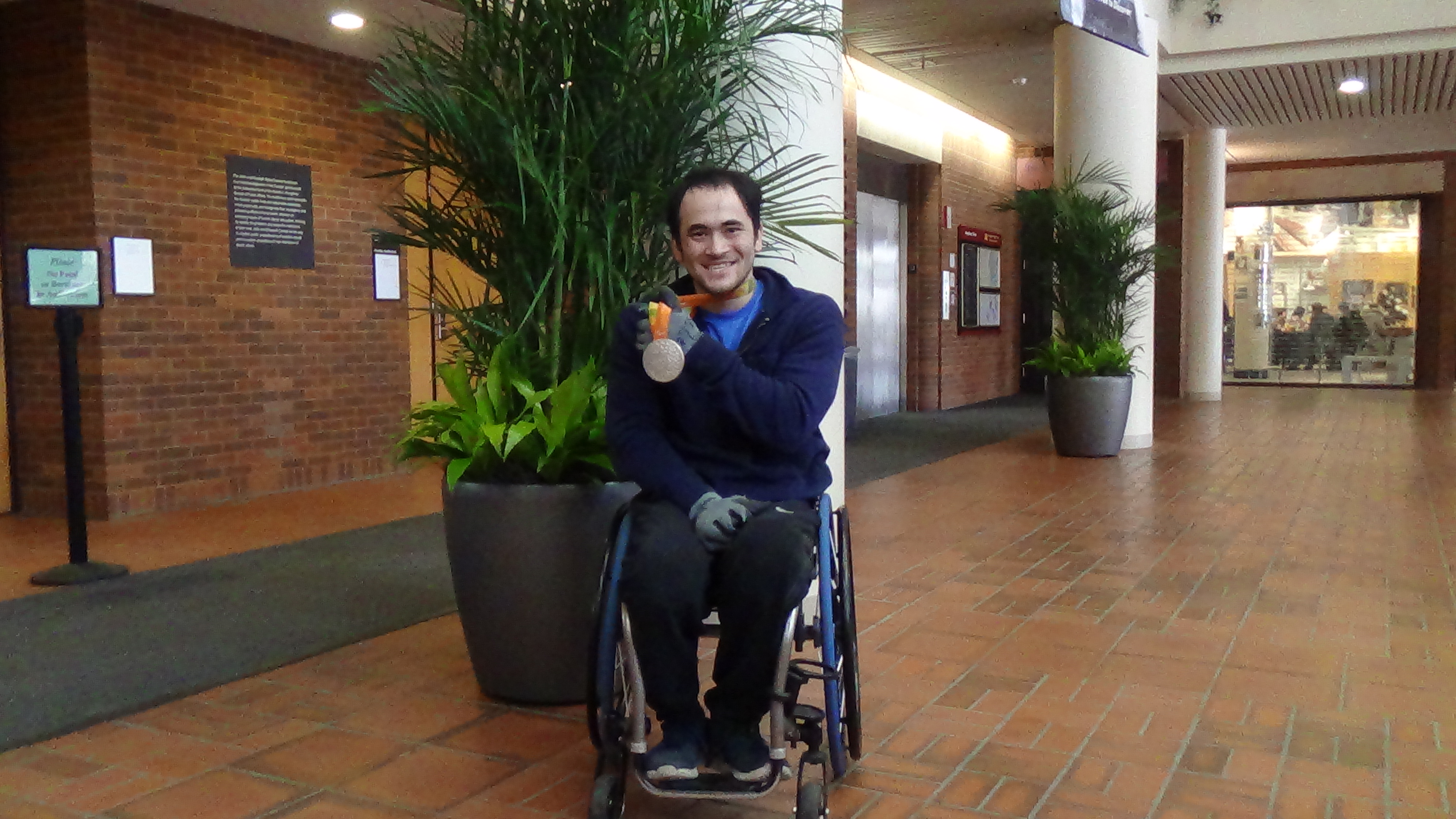Chuck Aoki was born with a rare genetic condition called hereditary sensory autonomic neuropathy type II, a disability that caused him to lose all sensation in his hands and below the knee. His love for sports did not blend well with that affliction.
“I would break my leg and not know it, or tear my ACL and not know it,” Aoki said.
At age 10, his doctors told him he had to use a wheelchair to prevent complete damage to his legs. So he pursued wheelchair basketball. And then, at around age 16, he watched Murderball, a movie that featured wheelchair rugby.
“When I saw wheelchair rugby, I was like, ‘Oh my god, these guys are smashing into each other and talking trash. This looks awesome.’” Aoki said. “It was a high-level sport that I wanted to be a part of and compete at a high level.”
 Compete he did. Aoki eventually became a member of the USA Wheelchair Rugby team at the London Paralympic games in 2012, earning a bronze medal, and the Rio games in 2016, earning a silver. Now he is pursuing a master’s degree in public policy at the University of Minnesota, working towards a career that can encompass his interest in international affairs and his desire to help people with disabilities. This summer he is interning at the National Democratic Institute, which has a focus on making sure the democratic process is accessible to everyone, particularly the underserved.
Compete he did. Aoki eventually became a member of the USA Wheelchair Rugby team at the London Paralympic games in 2012, earning a bronze medal, and the Rio games in 2016, earning a silver. Now he is pursuing a master’s degree in public policy at the University of Minnesota, working towards a career that can encompass his interest in international affairs and his desire to help people with disabilities. This summer he is interning at the National Democratic Institute, which has a focus on making sure the democratic process is accessible to everyone, particularly the underserved.
“I really have an interest in helping people with disabilities worldwide that really face a lot of discrimination,” he said. In his travels, he has noticed that some cultures marginalize disability, and he hopes to help change that.
Colleagues agree his willingness to give back to the disability community has made him a role model. He holds speaking engagements and volunteers through the Courage Kenny Rehabilitation Institute, a rehabilitation center for people with disabilities in Minneapolis.
“His contributions at the Courage Center have been tremendous and he inspires everyone around him,” Megan Welty, the center’s adaptive sports and recreation department sports supervisor said. “While we have speaking engagements, his story of representing our has inspired others to reach of their dreams.”
For Aoki, the road hasn’t always been easy. When he began playing sports as a child growing up in Minneapolis, it was sometimes challenging to help people become comfortable around him.

“I had some friends who were very accepting of who I am and what I was going through,” Aoki said. “The hard part was making new friends that may not know what they could ask me to do and what’s acceptable for me.”
As a youth, Aoki was fortunate to not face many prejudices about his wheelchair use, and that experience helped him advocate for himself when he went to college, he said.
“My parents were really good advocates for me,” he said. “In turn, I learned to ask for what I needed from teachers and administrators.”
The Courage Center’s program coordinator, Taavasa Mamea, said Aoki’s path through life has been a story of perseverance and independence.
“To watch him mature into a humble athlete has been an enjoying experience for many of us who worked with him,” Mamea said. “Even though his journey is a rare one for us because he had a pre-existing condition instead of an injury, we make sure that many athletes who come here have a chance to reinvent themselves and become somebody.”
For Aoki, having an experience of wearing a Paralympic medal is a sense of accomplishment, and he takes pride in representing his country.
“There’s nothing like wearing a medal. You can’t buy that experience,” Aoki said. “It’s an amazing accomplishment, the amount of work and effort that I put in all of my life. Looking back, it feels great.”
But he said he doesn’t want the medal to define his entire life.
“I hope that people will remember me as a genuine person who is compassionate, who worked hard and didn’t complain and cared about others so they can succeed in anything in their lives,” Aoki said.

